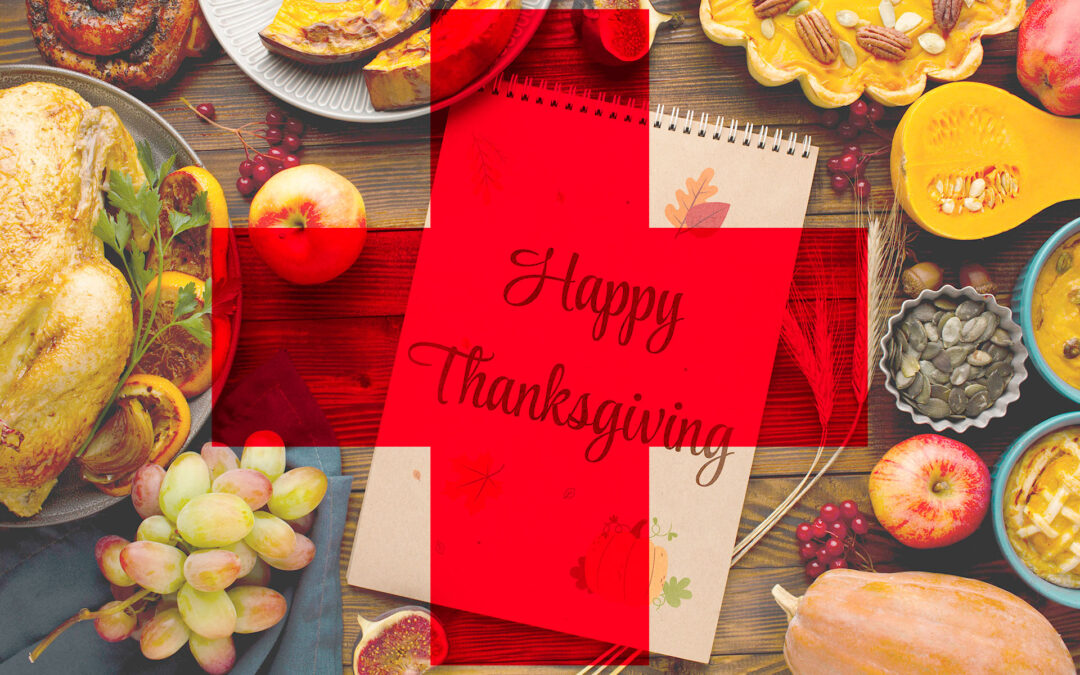Thanksgiving safety tips: How to stay healthy and avoid urgent care
Family gatherings in North Idaho bring back fond memories of delicious meals and festive times with the people we cherish the most. But with so many fun holiday activities, from preparing the Thanksgiving turkey to playing outside, it’s easy for people to get distracted, which can lead to an unfortunate accident or illness.
Our team at Northwest Urgent Care wants to make sure you enjoy the happiest and healthiest Thanksgiving holiday. Let’s review the five top causes of Thanksgiving injuries and illnesses and explore where you can seek care in the days following Thanksgiving.
1. Thanksgiving burn and fire prevention
Home fires are three times more likely to happen on Thanksgiving day than on any other day of the year, according to the National Fire Prevention Administration. The biggest culprit is unattended cooking.
If you’re making Thanksgiving dinner in your kitchen this year, never leave a pan unsupervised. Turn all pot handles toward the back of the stove so nobody can accidentally bump into them and spill hot water or oil onto their skin. Keep children away from pots. Use oven mitts to handle hot pans and platters. If a pot catches fire, cover it with a lid quickly to extinguish the flames.
Do you deep fry your turkey in the backyard instead? Then make sure to:
- Set the fryer on a level surface so it won’t tip over
- Keep your fryer at least 10 feet away from your house
- Don’t place the fryer under house eaves
- Thaw the turkey fully before putting it in the fryer. This will make it less likely for hot oil to splatter.
- Don’t overfill the pot with oil.
- Keep children away from the fryer.
- Consider alternatives to frying in oil, such as using an electric or air fryer.
A few other smart Thanksgiving fire safety tips: Keep a fully charged fire extinguisher nearby while cooking, and ensure all smoke detectors in your house are in good working order. In addition, if you’re using a wood-burning stove, pellet stove, or space heater inside your home, never leave it unattended, and keep children out of its reach.
2. Carving and knife injuries
The annual carving of the turkey or ham is a time-honored Thanksgiving tradition. You can make it a safe one, too, by reducing the risk of accidental cuts. Always carve on a stable surface like a table or cutting board. Use carving forks for added stability. Bend your fingers back while cutting, and cut in the direction opposite of your hand and body when trimming or deboning a turkey.
Be sure to sharpen all carving knives and tools before Thanksgiving Day. A sharp blade is easier to control and requires less pressure than a dull knife. Stay completely focused while carving. Once you’re finished, put all knives away so they don’t end up in the hands of children.
3. Thanksgiving food poisoning
Foodborne illnesses like salmonella or E. coli can happen when people eat undercooked turkey on Thanksgiving. Symptoms can include severe stomach cramps, diarrhea, nausea, or vomiting.
To prevent food poisoning, cook your turkey to an internal temperature of 165℉ before serving. Consider cooking the turkey and stuffing separately. Keep raw meat, poultry, seafood, and eggs separate. Wash your hands vigorously with soap and water for at least 20 seconds after touching raw meat, and wash cutting boards and utensils. Refrigerate leftovers as soon as dinner is over.
4. Trips, falls and sports injuries
Is a backyard flag football game part of your family’s Turkey Day ritual? If so, make sure participants—especially kids—wear helmets and other safety equipment. Also, warm up your muscles before playing any sports to prevent sprains and strains.
Trips and falls don’t only happen outside. Keep all floors and walkways inside your house dry and clear from debris, such as toys, bags, and purses.
Another smart injury prevention tip: Ask a helper before lifting the turkey out of the oven or carrying large pots off the stove. Doing so can help you avoid a pulled back muscle.
5. Excessive alcohol
If alcohol is part of your Thanksgiving feast, drink responsibly. Pace yourself so you don’t overindulge. Consider drinking water between each bottle of beer or glass of wine to stay properly hydrated. Be sure to eat. And assign a designated driver for the ride home. According to the National Safety Council, about 500 people die each year in automobile accidents during the Thanksgiving holiday, and alcohol plays a role in many of those accidents.
How to know when it’s an emergency
In the event of a cooking-related burn, run the affected area under lukewarm or cool water for 10 to 15 minutes, and consider topical treatments like aloe vera gel or over-the-counter pain medications (such as ibuprofen or acetaminophen). If the burn develops a blister or is larger than a couple of inches, seek emergency care.
Should a carving incident happen on Thanksgiving, apply pressure to the cut. If it doesn’t stop bleeding after 15 minutes, seek emergency care. Also, head to your local Emergency Room or call 911 for any sports or trip-and-fall injuries that involve head trauma, fractures, or joint dislocations.
Where to seek care for Thanksgiving injuries
While our Northwest Urgent Care locations are closed on Thanksgiving day to give our staff time with their families, sometimes Thanksgiving-related health problems don’t become apparent until after the holiday. For example, the signs of food poisoning can emerge anywhere between 1 to 3 days after your Thanksgiving meal.
Northwest Urgent Care offers care for common injuries and illnesses, including Thanksgiving-related conditions. With locations in Athol, Coeur d’Alene, Post Falls, and Rathdrum (Lakeland Immediate Care), you’ll find us close to home. Our compassionate team is one reason why we rank as the Best Urgent Care Facility in 2024 from The Business Journal of North Idaho. You can even reserve your spot online with us and save time.

